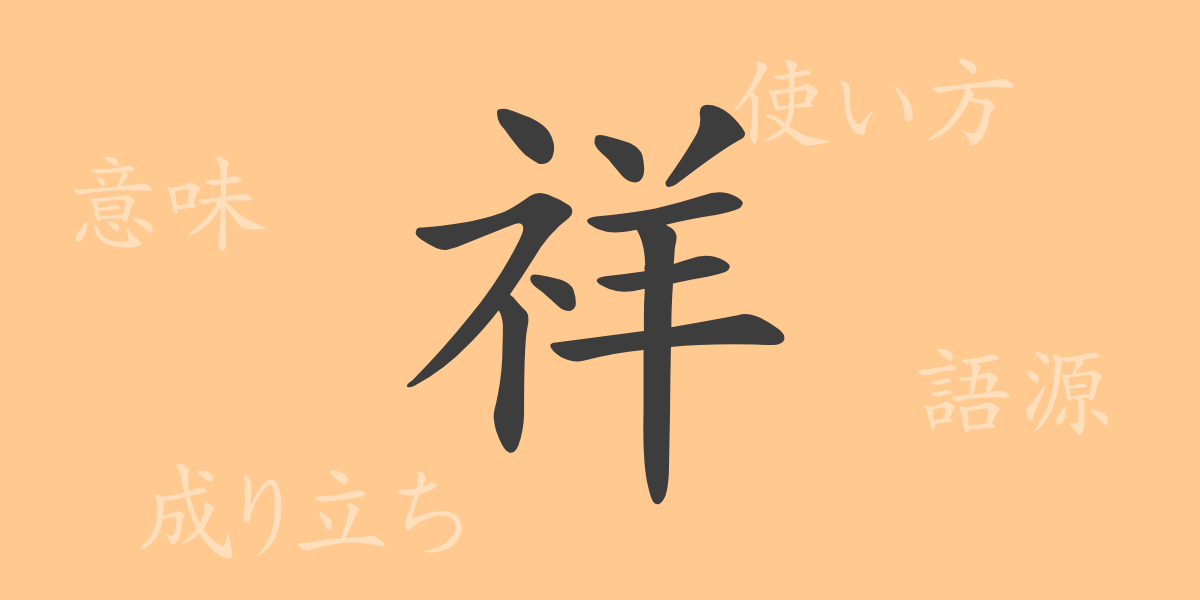The Japanese language is known for its beauty and deep meanings, and each kanji character carries a weight of emotions and history that reflects the richness of Japanese culture. In this article, we focus on the kanji “祥(しょう)”, which symbolizes good fortune. We will uncover everything from its origins to its meanings and usages, and explore the phrases and idioms associated with it.
Origins of 祥(しょう)
The character “祥(しょう)” has been used since ancient times in China, originally derived from pictographs depicting gods descending from heaven. Ancient people believed that celestial beings brought good fortune and auspicious news to the human world, thus “祥(しょう)” came to represent such propitious meanings.
Meaning and Usage of 祥(しょう)
“祥(しょう)” conveys meanings of ‘celebratory’, ‘auspicious’, and ‘fortunate’. It is particularly used to indicate the harbinger of good events or the advent of fortune. In Japan, it is commonly seen in joyous occasions like weddings and celebrations.
Pronunciation, Stroke Count, and Radical of 祥(しょう)
The kanji “祥(しょう)” is a complex character yet widely used in Japan as a common kanji:
- Pronunciation: The on’yomi (音読み) is “ショウ”, with no specific kun’yomi (訓読み).
- Stroke Count: “祥(しょう)” consists of 10 strokes.
- Radical: 示(しめすへん)
Phrases and Idioms Using 祥(しょう) and Their Meanings
Phrases and idioms containing “祥(しょう)” generally carry positive meanings. For example, “祥月命日(しょうげつめいにち)” respectfully refers to the anniversary of someone’s death, “吉祥天(きっしょうてん)” in Buddhism denotes a deity of good fortune, and “祥和(しょうわ)” signifies a state of peace and tranquility.
Summary on 祥(しょう)
The kanji “祥(しょう)” is cherished as a symbol of good luck and fortune, passed down through generations in Japan. Used in significant life moments like weddings and milestones, this character alone can evoke a shared sense of happiness among people. Whenever you encounter the kanji “祥(しょう)” in daily life, take a moment to appreciate its profound history and meaning, and savor the felicitous feelings it brings.

























